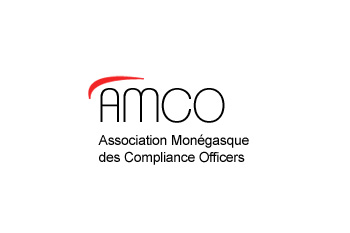
Marc Casanova, having taken over from François Poher, is now the new president of AMCO, the Monegasque Association of Compliance Officers. The current Secretary General of Banque de Gestion Edmond de Rothschild in Monaco, he has spent the best part of his career in the banking sector, where he held positions of responsibility in the control, legal and compliance area very early on.
Marc Casanova stresses that AMCO is very strongly mobilised on the issues connected with the FATCA (Foreign Account Tax Compliance Act) rules: these regulations, almost definitively established by the US tax authorities, have many implications for the Monaco banking and financial sector. The goal is to force financial intermediaries to identify and inform the IRS (Internal Revenue Service) of their American customers’ identity and assets. The role of AMCO, in close coordination with AMAF from which it is derived, is to help compliance officers in the different professions affected to prepare for the profound organisational changes induced by these new regulations. Last year, AMCO therefore provided support for the CCIN aimed at the adoption of a resolution facilitating a statement of processing inherent to gathering the required information.
Another topical subject is EMIR (European Market Infrastructure Regulation), aimed at improving the transparency and stability of the derivatives market. At first sight, the establishments of Monaco - which is not a member of the European Union - should not be directly impacted. However, EMIR could be applied to European entities conducting transactions with entities in the EU. AMCO, again in close consultation with AMAF, intends to contribute to a clarification of the framework applicable to Monaco institutions which may be asked to deal with European counterparts.
A third important subject is application of the MiFID (Markets in Financial Instruments Directive), which aims to ensure better investor protection and provide more transparency in financial markets. Financial institutions have in fact been required to establish an investor profile for their customers. Moreover, they must check whether their proposed products and services are well-suited to this profile. The previous directive, MIFID 1 - accused due to its abolition of stock exchange monopoly of exacerbating market fragmentation and the lack of market transparency - is not applicable in Monaco. Will this new draft, not yet final, force itself indirectly on the institutions in Monaco’s financial centre? Indeed, beyond the questions related to customer information methods, the main issue lies in access to the EU market, the intention of the directive, significantly restricting the ability of institutions of third party states such as Monaco to continue to provide financial services to customers resident in the EU.
While the regulation of financial institutions and trust companies intensifies over the months, owing in particular to the extension of money laundering controls and customer protection, Marc Casanova recalls that AMCO’s essential role is to help its members - through information, training and ties forged with the authorities and institutions of Monaco – to ensure the compliance of their activities. He sums up with the words, “We must do everything required by law. The professions subject to Law 1362 have legal obligations such that they must imperatively protect themselves, but not forgetting to protect the confidentiality of information which their customers have entrusted to them.”










